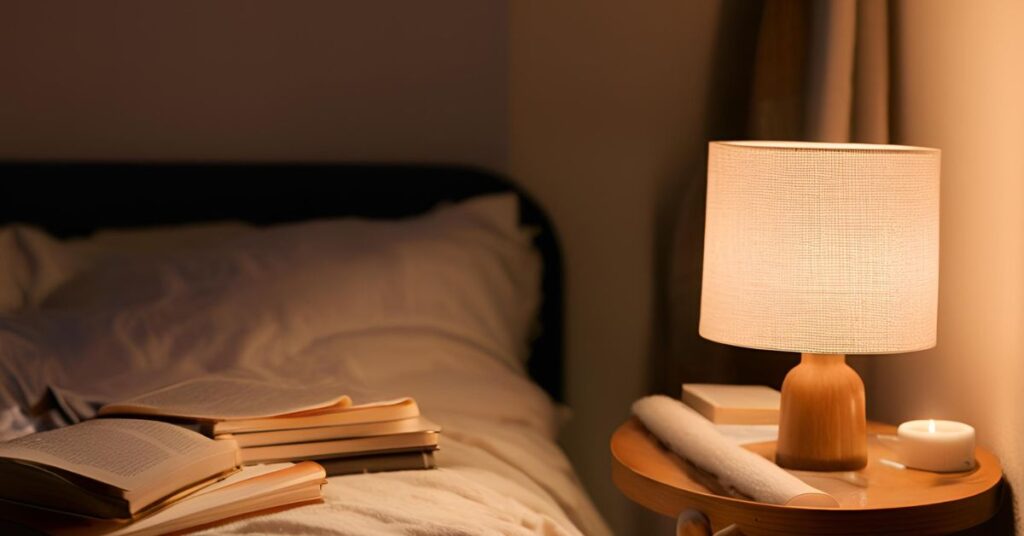Do you have trouble sleeping well at night? Discover how good books be your sleep companions. Many of us struggle to relax and get enough sleep. Healthy sleep is essential for our general well-being, and including reading into your bedtime routine may make a significant difference. Look at how the right bedtime books might improve your sleep patterns and lead to more restful evenings.
The Connection Between Reading and Sleep
Reading before bed is more than relaxing; it is an effective technique for treating sleep problems and enhancing overall sleep quality. Numerous studies have shown that including bedtime books into your nightly routine will significantly improve your ability to fall asleep quickly and have a good night’s sleep.
One of the main advantages of bedtime reading is its capacity to alleviate tension. In today’s fast-paced world, many of us bring the tensions and anxieties of the day with us to bed, making it difficult to relax and decompress. Reading is a pleasant break from these daily stresses, enabling your mind to focus on anything other than your to-do list or worries. This mental change helps to reduce your heart rate and cortisol levels, indicating to your body that it’s time to relax and prepare for sleep.
Adding bedtime reading to your nightly routine is a simple but effective method to enhance your sleep quality. Reading can help you get the deep and refreshing sleep you deserve by lowering stress, unplugging from modern gadgets, and preparing your mind for slumber.

Exploring the Impact of Reading Frequency on Sleep Quality
How often people read and how well they sleep. We asked people about their reading habits and sleep quality. People were grouped into four categories based on how often they read: “Rarely,” “Occasionally,” “Regularly,” and “Frequently.” Sleep quality was rated from 1 to 10, where 1 is poor and 10 is excellent.
- Participants who reported reading “Rarely” had an average sleep quality rating of 5.2.
- Those who read “Occasionally” had an average rating of 6.4.
- Readers who read “Regularly” reported an average rating of 7.6.
- Participants who read “Frequently” had the highest average sleep quality rating of 8.9.
The trend line shows a clear positive correlation between reading frequency and sleep quality, indicating that those who read more frequently tend to have higher-quality sleep.
Choosing the Right Bedtime Books
To get the most out of bedtime books, choose the correct type of book. Choose relaxing fiction, poetry, or light nonfiction to avoid overstimulating your mind. Avoid genres that are extremely thrilling or suspenseful, since these may keep you up longer. Getting a good night’s sleep is crucial for your overall health and well-being. In addition to bedtime reading, there are several other habits you can incorporate into your nightly routine to improve your sleep quality. Here are some friendly tips to help you achieve a restful night’s sleep:
The Guernsey Literary and Potato Peel Pie Society – Bedtime Books
“The Guernsey Literary and Potato Peel Pie Society” by Annie Barrows and Mary Ann Shaffer is a cherished international bestseller that has sold over 5 million copies. The novel is set in 1946 and follows Juliet Ashton, a writer suffering from acute writer’s block. She begins writing with Dawsey Adams, a stranger from Guernsey who discovers her name in a second-hand book. Juliet learns about the Guernsey Literary and Potato Peel Pie Society via their letters, which were created under the German occupation. Juliet, captivated by their stories, travels to Guernsey, where she experiences a life-changing event. This novel spawned a big film starring Lily James and Matthew Goode.

Anne of Green Gables – Bedtime Books
Anne of Green Gables by L. M. Montgomery, now part of the Puffin in Bloom series, features enchanting cover art by Anna Bond of Rifle Paper Co. This deluxe hardcover edition celebrates the beloved tale of Anne, an imaginative, red-haired orphan mistakenly sent to live with siblings on Prince Edward Island. Her vibrant spirit transforms their lives and the entire community. This timeless classic, which inspired the Netflix series Anne with an E, continues to captivate readers with its charm and enduring appeal.

The Nightingale – Bedtime Books
“The Nightingale” by Kristin Hannah is a global bestseller and soon-to-be major motion picture. This poignant novel highlights the resilience of the human spirit and the endurance of women during World War II. It follows Vianne and Isabelle Mauriac, two sisters separated by ideals and circumstances, each navigating a dangerous path in war-torn France. Celebrated for its rich storytelling and emotional depth, it is lauded by authors like Kate Morton and Isabel Allende. “The Nightingale” is a gripping tale of love, sacrifice, and survival, making it a timeless read.

Additional Tips for Healthy Sleep Habits
Getting a good night’s sleep is crucial for your overall health and well-being. In addition to bedtime books, there are several other habits you can incorporate into your nightly routine to improve your sleep quality. Here are some friendly tips to help you achieve a restful night’s sleep:

Set a Consistent Sleep Schedule
One of the most effective ways to improve your sleep quality is to establish a consistent sleep schedule. Going to bed and waking up at the same time every day helps regulate your body’s internal clock, making it easier to fall asleep and wake up feeling refreshed. Try to stick to your schedule even on weekends to maintain a steady rhythm.
Create a Relaxing Bedtime Routine
Developing a relaxing bedtime routine can signal to your body that it’s time to wind down. Consider activities like taking a warm bath, reading a book, or practicing relaxation techniques such as meditation or deep breathing exercises. These calming activities can help prepare your mind and body for sleep.
Limit Screen Time Before Bed
It’s important to limit your exposure to screens, such as smartphones, tablets, and computers, before bedtime. The blue light emitted by these devices can interfere with your body’s natural sleep-wake cycle. Try to avoid screens for at least an hour before bed and opt for more relaxing activities instead.
Watch What You Eat and Drink
What you eat and drink before bed can also impact your sleep quality. Avoid heavy meals, caffeine, and alcohol close to bedtime, as they can disrupt your sleep. Instead, opt for light snacks if you’re hungry and limit your intake of liquids to prevent waking up for bathroom trips.
Create a Sleep-Friendly Environment
Creating a sleep-friendly environment in your bedroom can significantly improve your sleep quality. Keep your bedroom cool, dark, and quiet, and invest in comfortable bedding and a supportive mattress. These simple changes can make a big difference in how well you sleep.
Manage Stress
Stress and anxiety can make it difficult to fall asleep and stay asleep. Practice stress-reducing techniques such as meditation, yoga, or journaling to help calm your mind before bed. By managing your stress levels, you can improve your sleep quality and overall well-being.
Get Regular Exercise
Regular exercise can improve your sleep quality and help you fall asleep faster. Aim for at least 30 minutes of moderate exercise most days of the week, but avoid vigorous exercise close to bedtime, as it can be stimulating and interfere with your ability to fall asleep.
Limit Naps
While a short nap can be refreshing, long or irregular napping during the day can interfere with your nighttime sleep. If you need to nap, aim for 20-30 minutes earlier in the day to avoid interfering with your sleep schedule.
Consider Your Sleep Environment
Your mattress and pillows can significantly impact your sleep quality. Invest in a comfortable mattress and pillows that support your sleeping position to ensure a restful night’s sleep.
Seek Professional Help if Needed
If you consistently have trouble sleeping despite trying these tips, consider consulting with a healthcare professional. They can help identify any underlying issues and recommend appropriate treatment to improve your sleep quality.
By incorporating these tips into your nightly routine, you can improve your sleep quality and wake up feeling refreshed and rejuvenated each morning.

Personal Stories and Testimonials on Bedtime Books
Many readers have found that integrating reading into their nightly routine has dramatically improved their sleep quality.
“Reading ‘Pride and Prejudice‘ before bed has become my nightly ritual. It calms my mind and makes falling asleep so much easier.”
Mohsin Ansari
1. Stephen King: The Magic of Books
- Stephen King once said, “Books are a uniquely portable magic.” This sentiment resonates with countless individuals who have experienced the transformative power of bedtime reading on their sleep quality.
2. Maya Angelou: Writing as Expression
- Maya Angelou, known for her poetic words, once shared, “I have often been asked how I came to write. The answer is that I come to it because I have an innate need to write.” For her, writing was a form of expression and solace, much like reading can be for many of us.
3. Ernest Hemingway: The Loyalty of Books
- Ernest Hemingway, known for his concise prose, understood the importance of winding down with a good book. He famously said, “There is no friend as loyal as a book,” highlighting the companionship and comfort that books can provide.
4. J.K. Rowling: The Magic of Reading
- J.K. Rowling, the mastermind behind Harry Potter, has spoken about the role of reading in her life. She once revealed, “I do believe something very magical can happen when you read a good book.” This sentiment echoes the experiences of readers worldwide who have found peace through reading.
Conclusion
Incorporating the right books into your bedtime routine can be a powerful tool for achieving better sleep. By selecting calming reads, creating a consistent routine, and fostering a sleep-friendly environment, you can transform your nights from restless to restful. Pick up one of our recommended books tonight and begin your path to peaceful, rejuvenating sleep.
Resources and Further Reading Bedtime Books
- The Sleep Foundation: Benefits of Reading Before Bed
- Harvard Health: Blue Light Has a Dark Side
- Goodreads: Best Books for Bedtime
FAQ Bedtime Books
What is insomnia, and what are its common symptoms?
Insomnia is a sleep disorder characterized by difficulty falling asleep, staying asleep, or waking up too early and not being able to go back to sleep. Common symptoms include daytime fatigue, irritability, difficulty concentrating, and feeling unrefreshed after sleep.
What are the main causes of insomnia?
Insomnia can be caused by various factors, including stress, anxiety, depression, poor sleep habits, medical conditions, medications, caffeine or alcohol consumption, and environmental factors such as noise or light.
How can bedtime reading help with insomnia?
Bedtime reading can help reduce stress and anxiety, provide a mental distraction from worries, and promote relaxation. By creating a calming bedtime routine, reading can signal to your body that it’s time to wind down and prepare for sleep, making it easier to fall asleep and stay asleep.
What types of books are best for bedtime reading?
The best books for bedtime reading are those that are calming and not overly stimulating. Gentle fiction, poetry, light non-fiction, and classics with soothing narratives are ideal. Avoid thrillers, horror, or any content that might increase your heart rate or keep you on edge.
How long should I read before bed to improve my sleep?
It’s recommended to read for at least 15-30 minutes before bed. This allows enough time for your mind to shift from the day’s activities to a more relaxed state, but not so long that you end up staying awake later than planned.
Should I avoid reading e-books before bed?
If possible, it’s best to read physical books before bed. The blue light emitted by screens (such as those on e-readers, tablets, and smartphones) can interfere with your body’s production of melatonin, a hormone that regulates sleep. If you prefer e-books, use an e-reader with a warm light feature or a blue light filter to minimize this effect.
What are some other tips for creating a bedtime routine that promotes sleep?
- Keep a consistent sleep schedule by going to bed and waking up at the same time every day.
- Create a relaxing environment by keeping your bedroom cool, dark, and quiet.
- Avoid caffeine, nicotine, and heavy meals close to bedtime.
- Engage in relaxing activities such as taking a warm bath, practicing gentle yoga, or meditating.
- Limit exposure to screens and bright lights at least an hour before bed.
Can dietary changes help improve insomnia?
Yes, certain dietary changes can help improve sleep. Avoiding caffeine and alcohol in the hours leading up to bedtime is important. Eating a balanced diet with foods rich in magnesium (like leafy greens, nuts, and seeds) and tryptophan (like turkey, bananas, and dairy) can also promote better sleep.
When should I seek professional help for insomnia?
If you’ve tried self-help strategies and lifestyle changes but continue to struggle with insomnia for more than a few weeks, it may be time to seek professional help. A healthcare provider or sleep specialist can help identify any underlying medical conditions and recommend appropriate treatments or therapies.
Can exercise help reduce insomnia?
Regular physical activity can improve sleep quality and reduce symptoms of insomnia. Aim for at least 30 minutes of moderate exercise most days of the week, but avoid vigorous exercise close to bedtime as it may have a stimulating effect.
How can mindfulness and meditation aid in solving insomnia?
Mindfulness and meditation can help reduce stress and anxiety, which are common causes of insomnia. These practices promote relaxation and can help quiet the mind, making it easier to fall asleep. Techniques such as deep breathing, progressive muscle relaxation, and guided imagery can be particularly effective.
Are there any natural supplements that can help with insomnia?
Some natural supplements, such as melatonin, valerian root, and magnesium, can help improve sleep quality. However, it’s important to consult with a healthcare provider before starting any new supplement, especially if you are taking other medications or have underlying health conditions.





